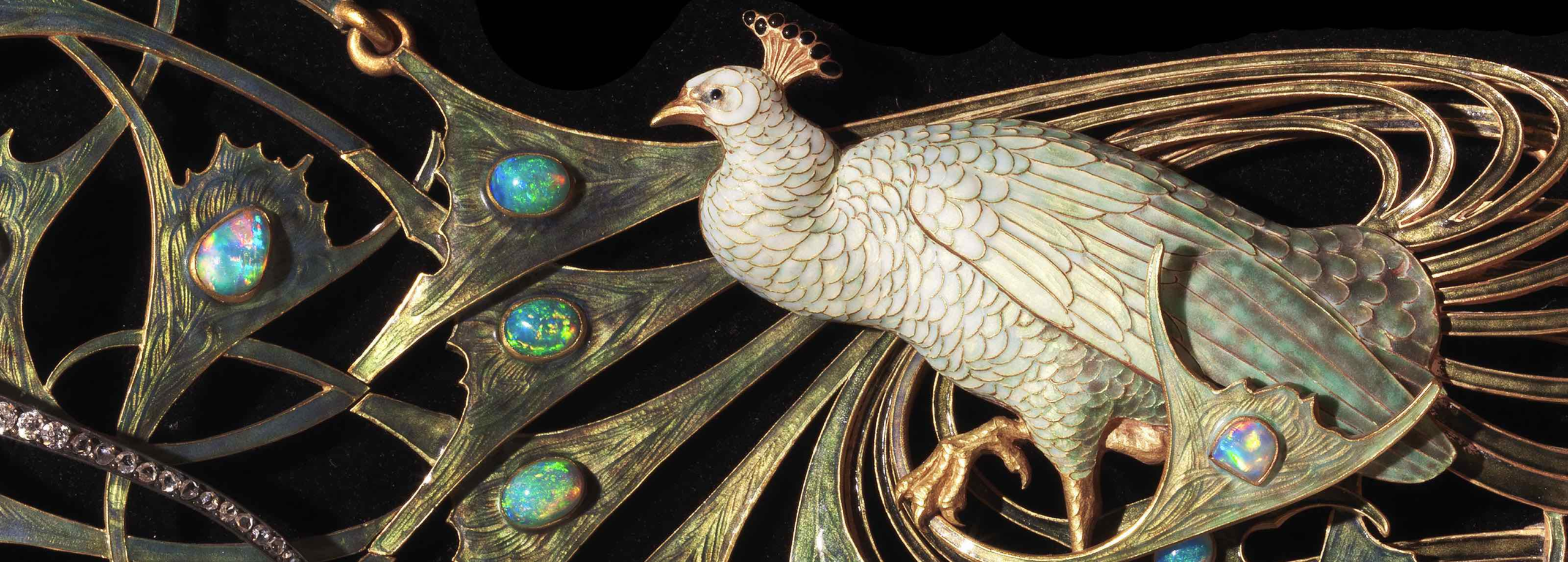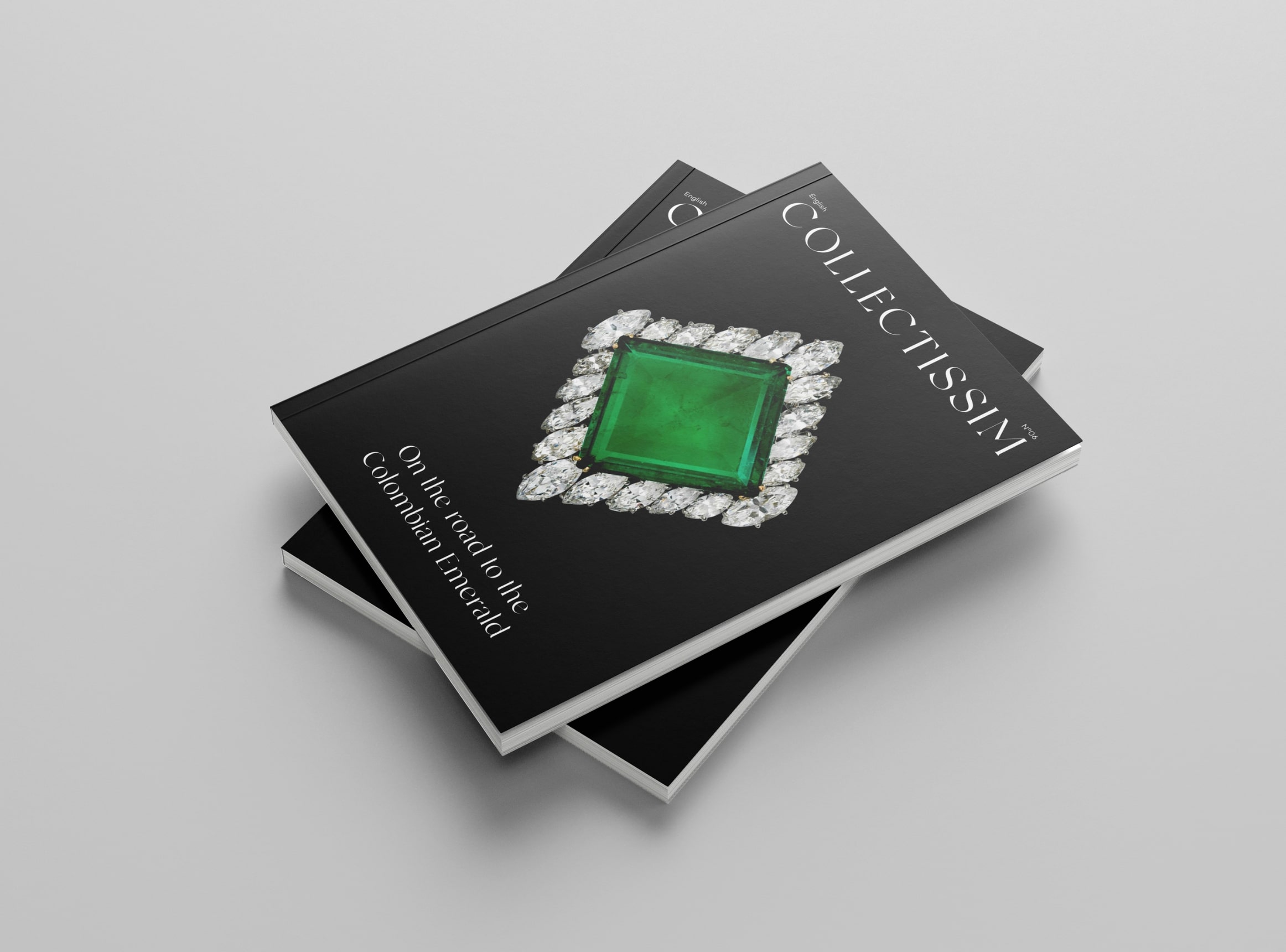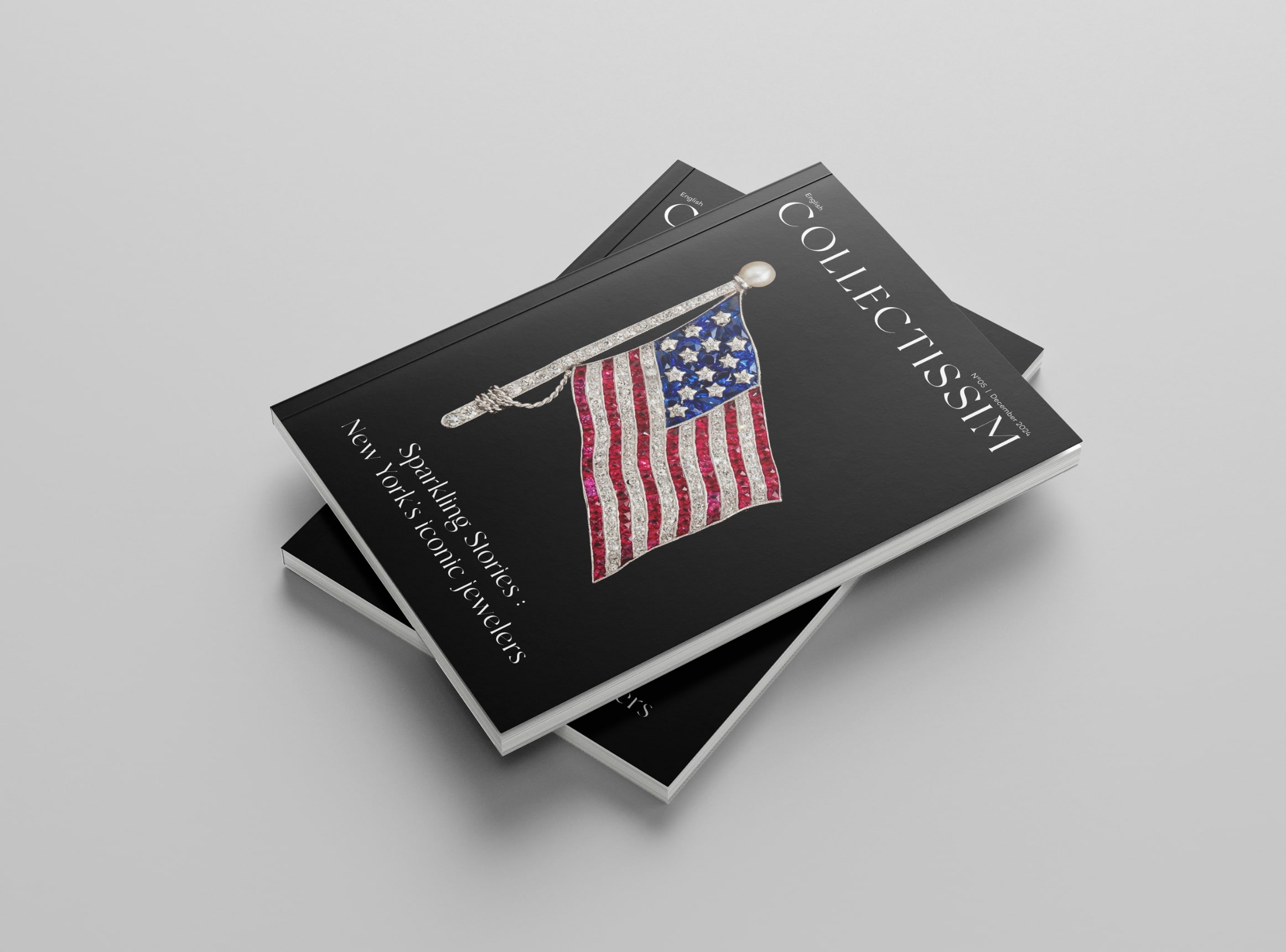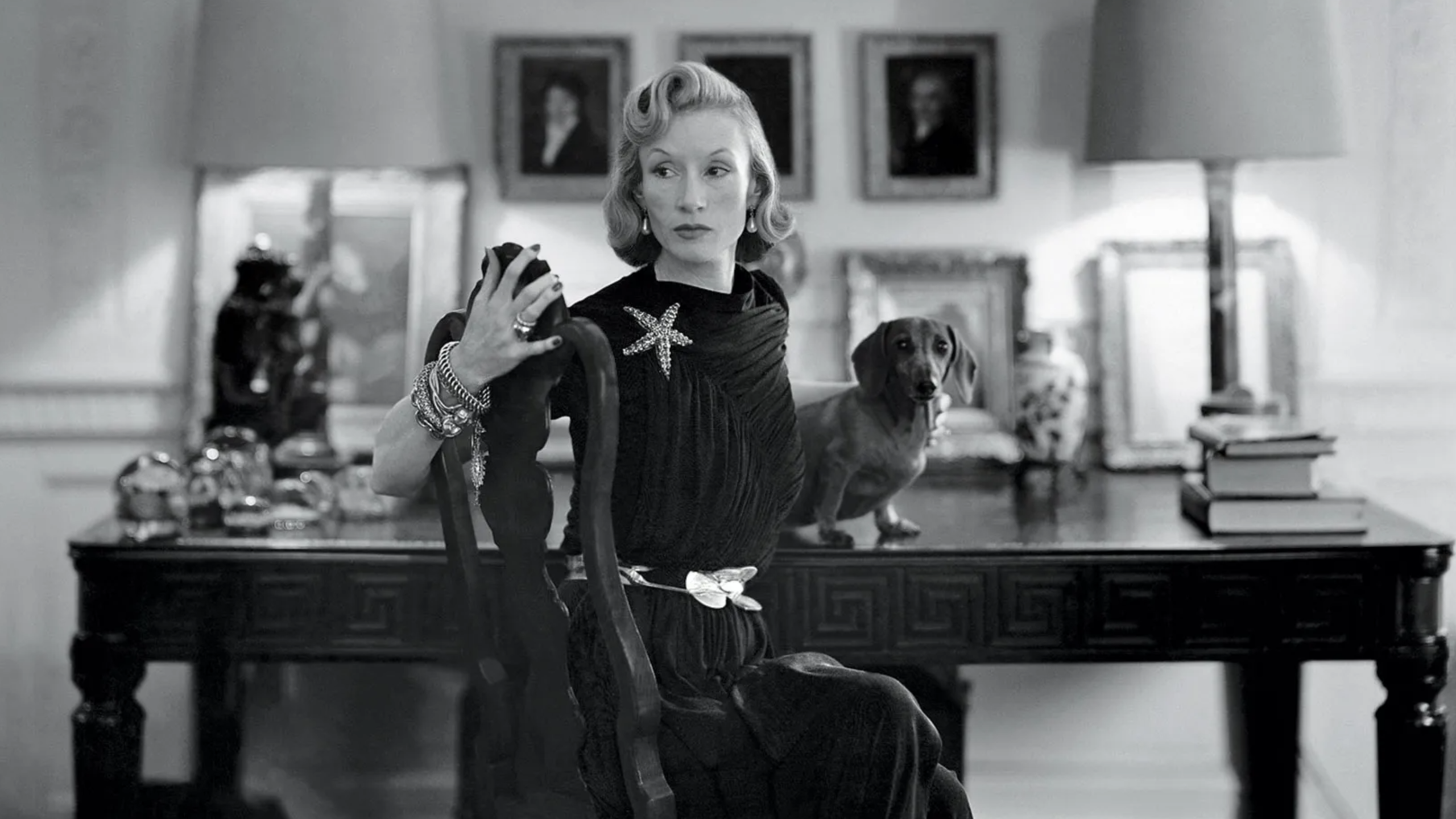Art Nouveau Head Jewels by René Lalique
René Lalique, a pioneer of the Art Nouveau movement, revolutionized jewelry design by blending artistic innovation with nature-inspired themes. Known for his daring use of materials like enamel, glass, and horn, Lalique’s brooches are masterpieces that capture the beauty of flora, fauna, and femininity.

René Lalique, undisputed master of the Art Nouveau style, transformed the jewelry of his time by infusing it with a revolutionary artistic vision. Rejecting the traditional conventions of fine jewelry based primarily on precious gems, Lalique adopted an approach in which aesthetics and symbolism took precedence over the richness of materials. Its jewels, true works of art, embody a harmonious celebration of nature, women and mythology, recurring themes in its creative repertoire.
Lalique's style is distinguished by the bold use of unusual materials such as enamel, glass, horn and opal, combined with precious metals. These elements, enhanced by innovative techniques such as modeling and engraving, capture effects of light and movement that give his pieces an almost living depth. Inspired by the natural world, he depicts floral, wildlife and feminine motifs with poetic realism, while incorporating stylized elements characteristic of the Art Nouveau movement.
By exploring universal themes such as the ephemeral beauty of nature and the mystical sensuality of women, Lalique redefined jewelry as a form of artistic expression in its own right. His creations, both innovative and timeless, continue to inspire and captivate art and jewelry lovers around the world.
René Lalique, undisputed master of the Art Nouveau style, transformed the jewelry of his time by infusing it with a revolutionary artistic vision. Rejecting the traditional conventions of fine jewelry based primarily on precious gems, Lalique adopted an approach in which aesthetics and symbolism took precedence over the richness of materials. Its jewels, true works of art, embody a harmonious celebration of nature, women and mythology, recurring themes in its creative repertoire.
Lalique’s style is distinguished by the bold use of unusual materials such as enamel, glass, horn and opal, combined with precious metals. These elements, enhanced by innovative techniques such as modeling and engraving, capture effects of light and movement that give his pieces an almost living depth. Inspired by the natural world, he depicts floral, wildlife and feminine motifs with poetic realism, while incorporating stylized elements characteristic of the Art Nouveau movement.
By exploring universal themes such as the ephemeral beauty of nature and the mystical sensuality of women, Lalique redefined jewelry as a form of artistic expression in its own right. His creations, both innovative and timeless, continue to inspire and captivate art and jewelry lovers around the world.
Fauna
René Lalique's Art Nouveau fauna jewels embody the revolutionary, naturalistic spirit of this master jeweler. Renowned for his artistic daring and technical mastery, Lalique drew an inexhaustible source of inspiration from nature. His faunal creations, made from innovative materials such as enamel, horn, and opal, combine poetry and realism in a distinctive style.
Lalique favored animals often associated with strong symbols: butterflies, dragonflies, snakes and bats. These animals were depicted not only for their beauty, but also for their emotional charge and symbolism. Dragonflies, for example, evoke both transience and transformation, while bats, fascinating and mysterious, add a gothic, fantastical note to his creations.
René Lalique’s Art Nouveau fauna jewels embody the revolutionary, naturalistic spirit of this master jeweler. Renowned for his artistic daring and technical mastery, Lalique drew an inexhaustible source of inspiration from nature. His faunal creations, made from innovative materials such as enamel, horn, and opal, combine poetry and realism in a distinctive style.
Lalique favored animals often associated with strong symbols: butterflies, dragonflies, snakes and bats. These animals were depicted not only for their beauty, but also for their emotional charge and symbolism. Dragonflies, for example, evoke both transience and transformation, while bats, fascinating and mysterious, add a gothic, fantastical note to his creations.
Flora
René Lalique's flora-themed Art Nouveau jewelry are a masterful, poetic celebration of nature. Inspired by the diversity and delicacy of the plant world, Lalique transformed ordinary elements into extraordinary jewelry, embodying the naturalist, organic spirit of the Art Nouveau movement.
Lalique revisited plant motifs such as flowers, leaves, stems and grasses, often stylized to capture their essence rather than their mere appearance. His most famous creations feature flowers such as orchids, poppies and wisteria, chosen not only for their beauty, but also for their symbolic associations. For example, orchids, with their intricate shapes and exotic allure, evoke elegance and mystery, while poppies, often adorned with brilliant enamels, symbolize dreams and sensuality.
The innovative use of materials such as enamel, semi-precious stones, glass and even horn gives these jewels a depth and luminosity that mimic the vitality of plants in their natural state. The subtle gradations of color in the enamel evoke the play of light on petals or leaves, reinforcing the impression of movement and life.
René Lalique’s flora-themed Art Nouveau jewels are a masterful, poetic celebration of nature. Inspired by the diversity and delicacy of the plant world, Lalique transformed ordinary elements into extraordinary jewelry, embodying the naturalist, organic spirit of the Art Nouveau movement.
Lalique revisited plant motifs such as flowers, leaves, stems and grasses, often stylized to capture their essence rather than their mere appearance. His most famous brooches feature flowers such as orchids, poppies and wisteria, chosen not only for their beauty, but also for their symbolic associations. For example, orchids, with their intricate shapes and exotic allure, evoke elegance and mystery, while poppies, often adorned with brilliant enamels, symbolize dreams and sensuality.
The innovative use of materials such as enamel, semi-precious stones, glass and even horn gives these creations a depth and luminosity that mimic the vitality of plants in their natural state. The subtle gradations of color in the enamel evoke the play of light on petals or leaves, reinforcing the impression of movement and life.
Women
The female figures in Lalique's creations often appear as ethereal muses, surrounded by natural elements such as flowers, leaves or scrolls. These compositions highlight the perfect harmony between nature and femininity, underscoring the intimate connection between the two. The delicately sculpted female faces and silhouettes convey enigmatic, bewitching expressions, evoking qualities such as grace, strength and mystery.
In some jewels, women seem to emerge from floral motifs, merging with their surroundings, as if to illustrate the idea that femininity and nature are inseparable.
Lalique's theme of women was also influenced by mythology and symbolism. Some creations depict winged female figures, such as fairies or goddesses, evoking ideals of freedom and transcendence. Others embody a more sensual vision, with flowing hair and delicate poses, reminiscent of figures in paintings by Gustave Klimt or sculptures by Rodin, Lalique's contemporaries.
The female figures in Lalique’s creations often appear as ethereal muses, surrounded by natural elements such as flowers, leaves or scrolls. These compositions highlight the perfect harmony between nature and femininity, underscoring the intimate connection between the two. The delicately sculpted female faces and silhouettes convey enigmatic, bewitching expressions, evoking qualities such as grace, strength and mystery.
In some jewels, women seem to emerge from floral motifs, merging with their surroundings, as if to illustrate the idea that femininity and nature are inseparable.
Lalique’s theme of women was also influenced by mythology and symbolism. Some creations depict winged female figures, such as fairies or goddesses, evoking ideals of freedom and transcendence. Others embody a more sensual vision, with flowing hair and delicate poses, reminiscent of figures in paintings by Gustave Klimt or sculptures by Rodin, Lalique’s contemporaries.





